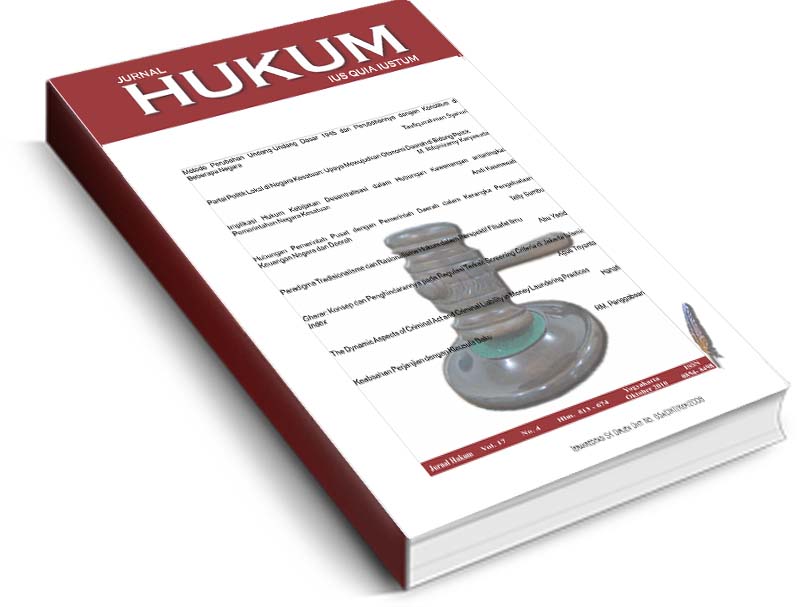Main Article Content
Abstract
Both Islamic law and western positivism have similar pretension related to the final aim in arranging the community according to the existing regulation. The stain of differences can not be avoided when the jurists are not in line with human as both subject and user in observing the relation pattern among the regulations themselves. The focused problem of this research is; first, how are the rational and traditional paradigms in the ideal tradition of Islamic law?Second, what are the rational and traditional paradigms in the ideal tradition of western law? Third, how is the implication of the difference of Islamic law and western positivism in the perspective of philosophy
studies? This research is a qualitative research using a philosophic approach. The data collecting technique was conducted through the literacy study. This research has concluded as the following; first, a traditionalism group tends to keep the tradition that has been organized as the formal consideration in the law excavating activities. On the other hand, a rationalism group proposes the using of common sense that is often simply called into qiyas (analogy) in the series of istinbath law process. Second, according to the traditionalism view, deciding the law is in the normative and positivism (empiric) view which are always based on facts and empiric experiences, while rationalism view, the reality can be known or several truths about reality can be known without depending on the observation, experience, and the use of empiric method. Third, the difference is implied to the law relating to the social classes as its subject. If the law touches morality, so the law substance is not absolute and final, but it depends on the aspect of advantage as the source.
Key words : Rationalism, positivism, religious texts, normativism, traditionalism
Article Details
Authors who publish with this journal agree to the following terms:
a. Authors retain copyright and grant the journal right of first publication with the work simultaneously licensed under a Creative Commons Attribution License that allows others to share the work with an acknowledgement of the work's authorship and initial publication in this journal.
b. Authors are able to enter into separate, additional contractual arrangements for the non-exclusive distribution of the journal's published version of the work (e.g., post it to an institutional repository or publish it in a book), with an acknowledgement of its initial publication in this journal.




